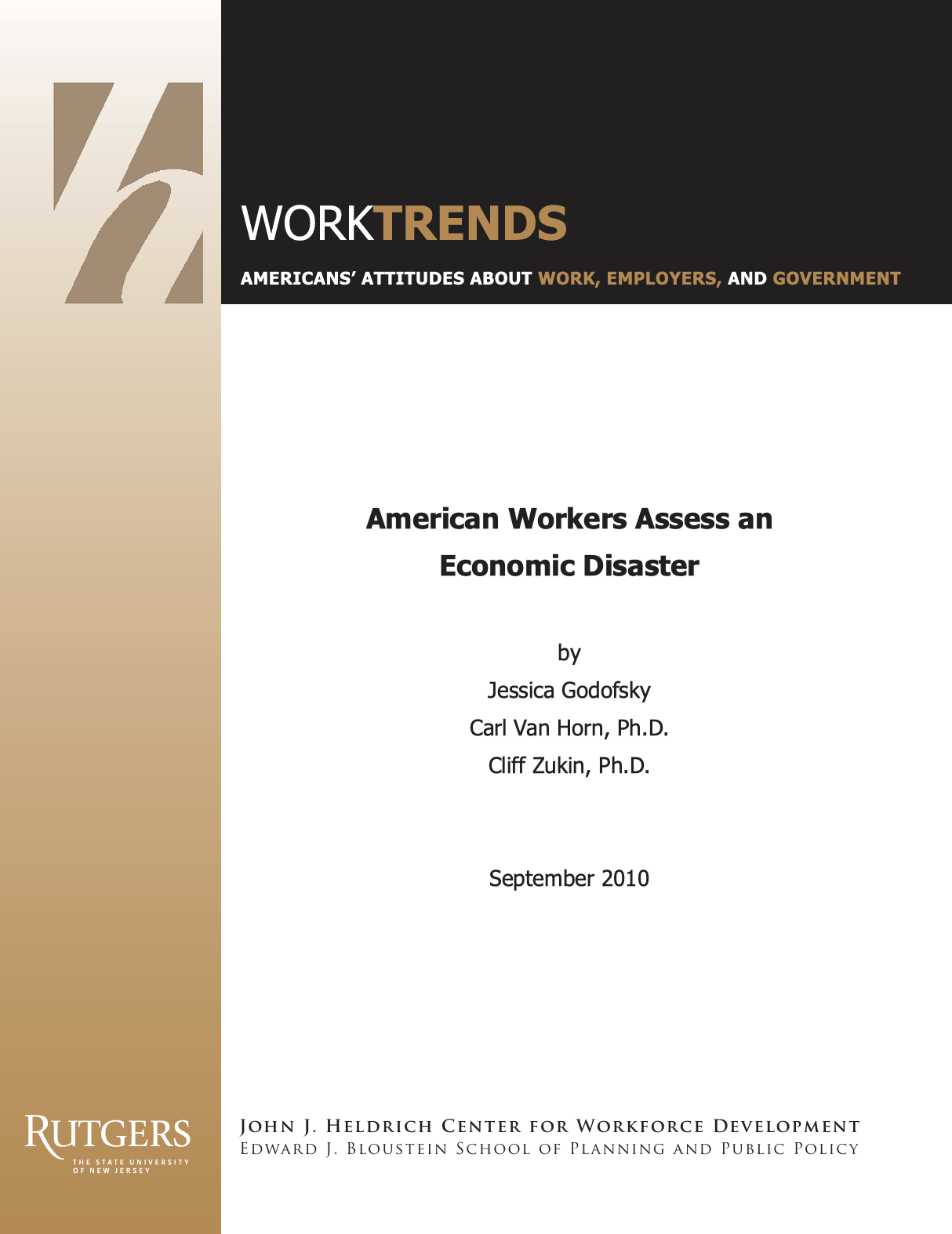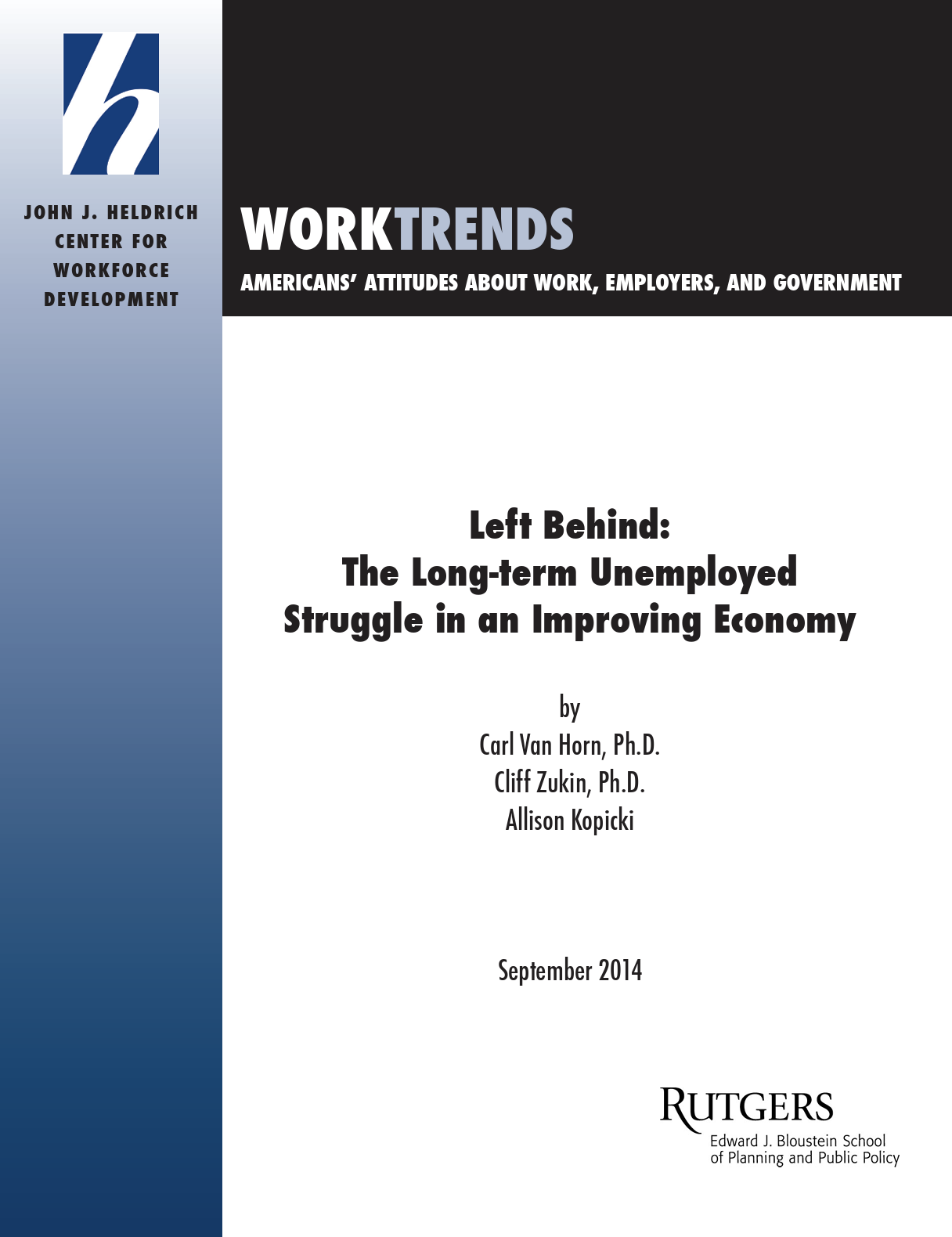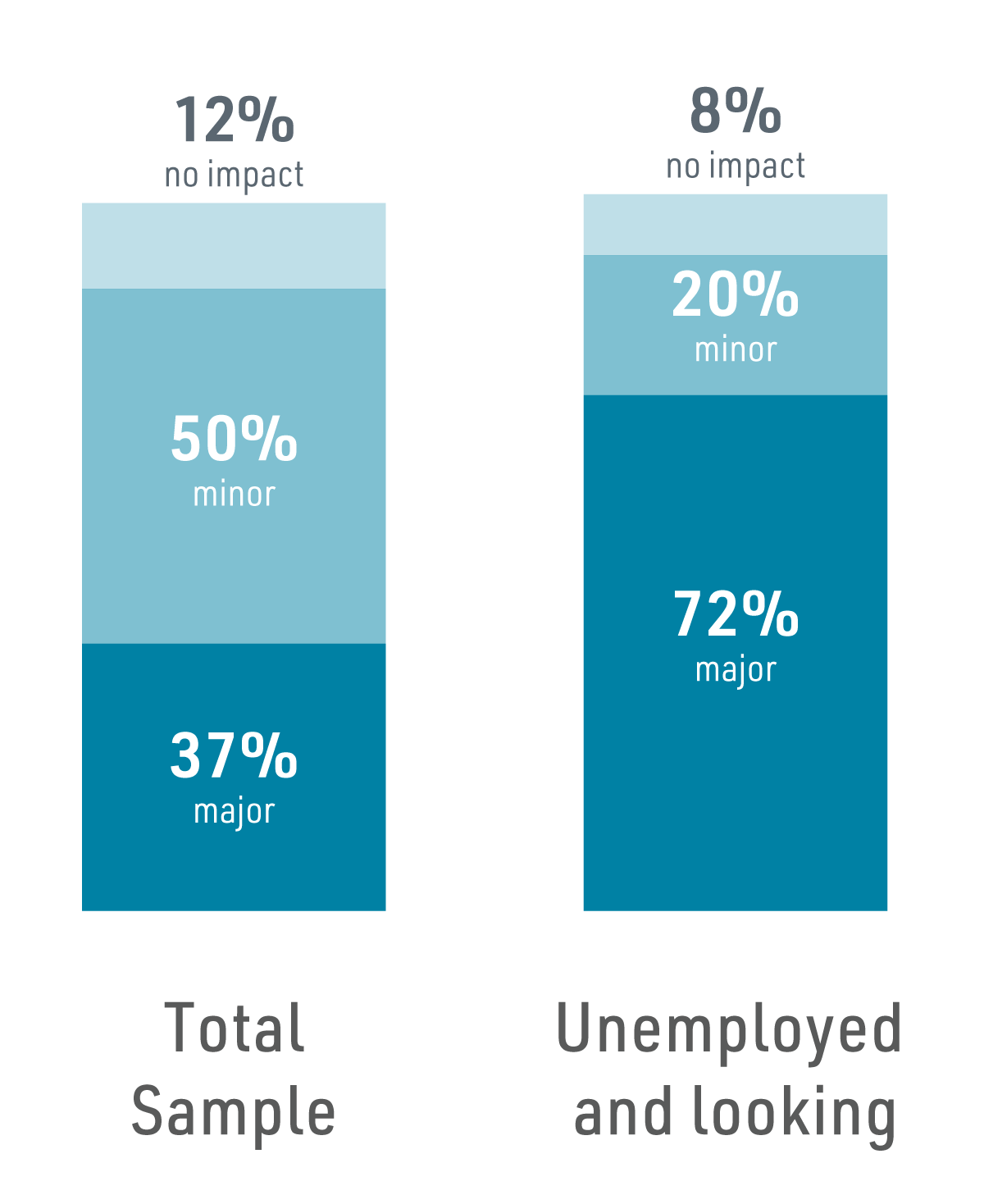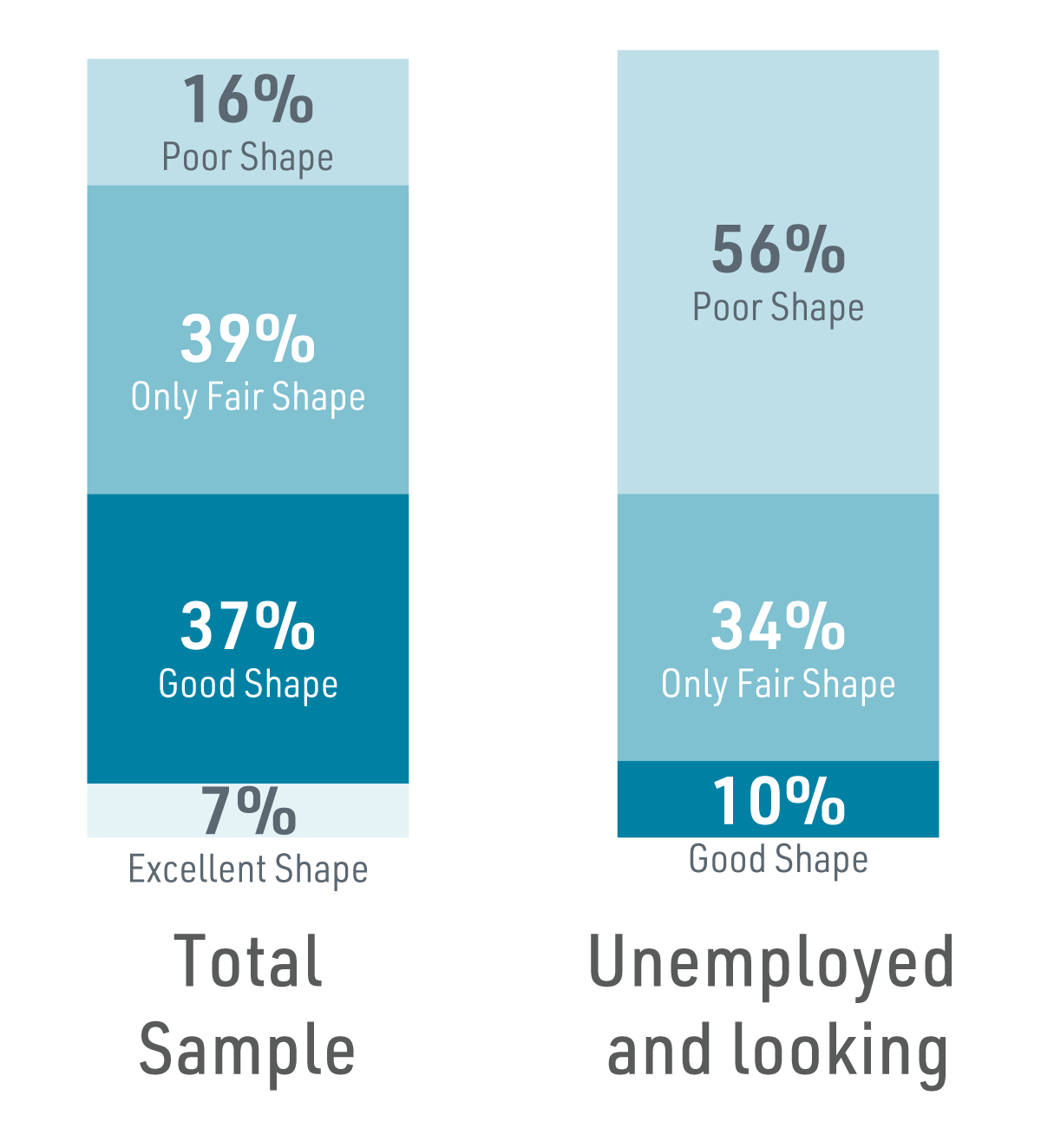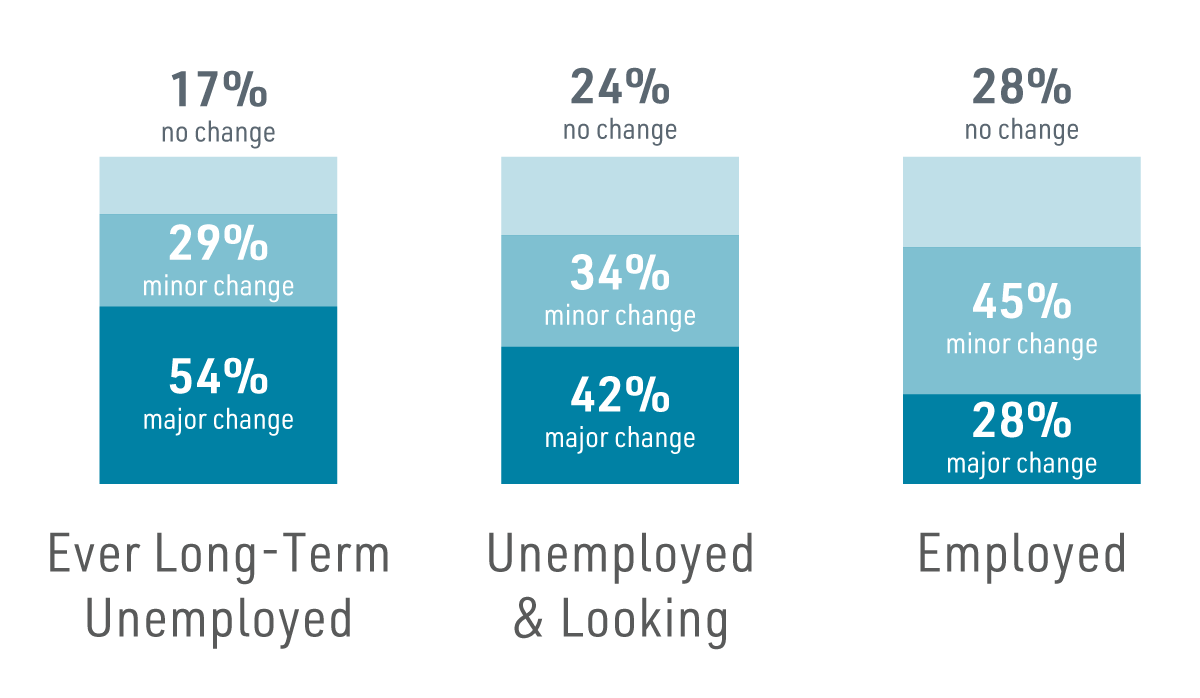Work Trends | Chapter 6
The Great Recession and Slow Recovery
Nationally representative studies of American adults were conducted during and after the Great Recession, studying the differences and similarities in the views of those who were employed and those who were out of work. The studies also investigated how workers viewed the causes of unemployment and how they assessed the near- and long-term future of the labor market. These studies showed the slow recovery that the economy, labor market, and American families endured.
Studies
American Workers Assess an Economic Disaster
Fielded online from July 19 to August 6, 2010, with a national probability sample of 818 U.S. residents aged 18 or older. The sample includes 326 respondents who were employed and 262 respondents who were unemployed and looking for work.
Left Behind: The Long-Term Unemployed Struggle in an Improving Economy
Fielded online from July 24 to August 3, 2014, with a national probability sample of 1,153 U.S. residents aged 18 or older. The sample includes 463 respondents who were employed, 394 respondents who were unemployed and looking for work, and 297 respondents who were long-term unemployed, currently unemployed, and looking for work for at least seven months.
Key Findings
The Great Recession took a heavy toll on unemployed Americans.
In 2010, about three in four of the unemployed respondents (72%) reported the economic downturn had a major impact on them and their families.
When asked to rate their financial circumstances as excellent, good, fair, or poor, a majority (56%) described their family finances as poor, with 90% of the unemployed in fair or poor shape.
Unemployed Americans who had been forced to deal with the shock of being laid off were not alone – nearly three in four American workers (72%) either lost a job or had a family member or close friend who lost a job in the three years before the survey. More than half of Americans had an immediate or extended family member who lost a job during the recession.
Click to enlarge
In 2010, there was no consensus among American workers about potential policy remedies for the unemployed and the economy. By a margin of 70% to 30%, more disagreed than agreed that a new economic stimulus package was needed, even if it added to the national debt. Half believed the government should cut taxes for businesses in order to help create jobs, even if it caused the national debt to increase.
Two-thirds of all adults in the 2014 survey, including those who were laid off and those who never lost a job, said the Great Recession had an impact on their standard of living, a staggering number in American society.
- Few Americans said that their finances were in a good place and expressed little optimism that their situation would improve in the next year. About 8 in 10 currently unemployed (78%) and long-term unemployed (81%) rated their financial situation as being fair or poor, compared to 58% of employed Americans.
By the Numbers
The vast majority of those out of work in 2010 said they would be willing to make the following sacrifices to regain employment:
%
were willing to take a temporary job
%
were willing to earn a little less
%
were willing to work in a new area or field
%
were willing to work less favorable hours
%
were willing to accept a lower-status job than they previously held
%
were willing to work below their level of skill or training
In 2014, the long-term unemployed cited several difficult measures they were forced to take to cope with the economic recession, even years later:
%
experienced stress in personal relationships
%
sold some of their possessions to make ends meet
%
borrowed money from family or friends, other than adult children
%

